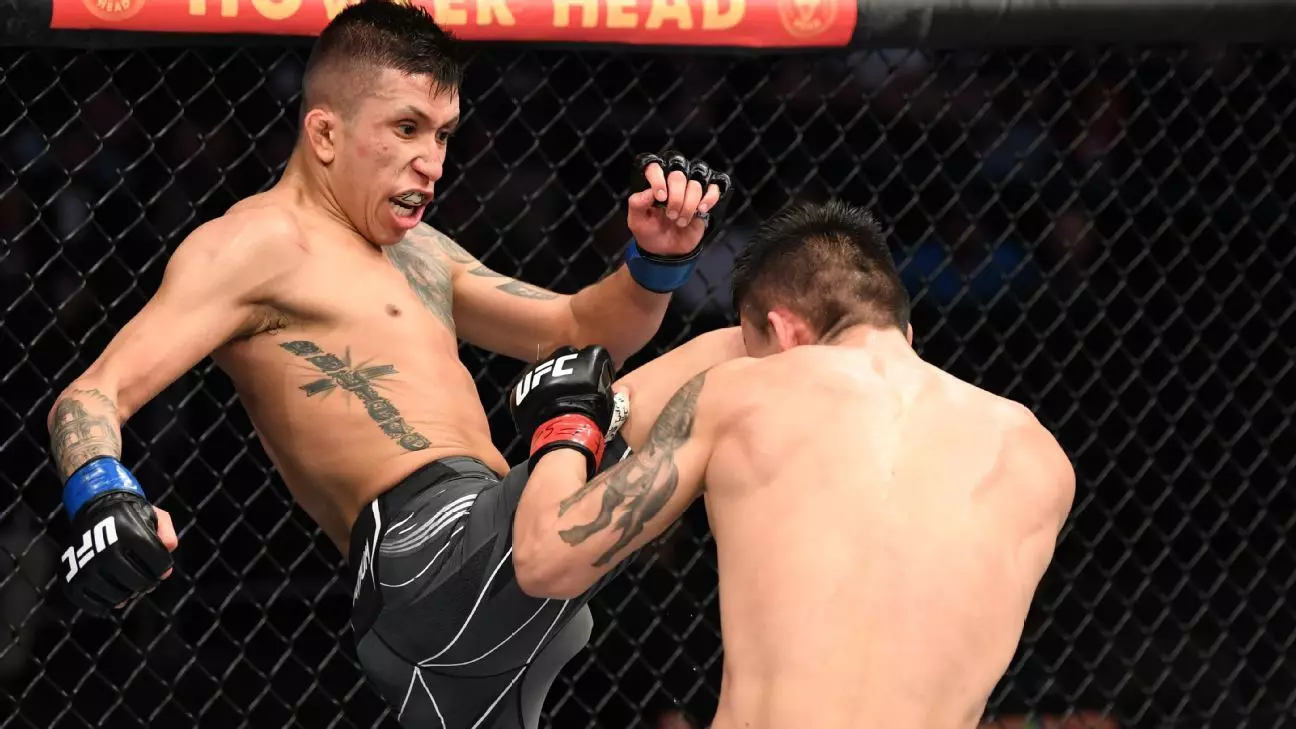The world of mixed martial arts (MMA) is not only a battleground for physical prowess but also a canvas for ethics and integrity, which are increasingly being questioned. This was most vividly illustrated in the case of Jeff Molina, a rising star whose career was marred by his involvement in clandestine betting practices. In November 2022, during a contentious UFC bout between Darrick Minner and Shayilan Nuerdanbieke, Nevada Athletic Commission (NAC) officials uncovered that Molina used insider information—specifically an undisclosed injury of Minner—to place significant bets. This incident has highlighted the grim realities of how financial incentives can corrupt the sacred codes of sportsmanship.
The Dangerous Interplay of Information and Gambling
The NAC, which serves as the regulatory body overseeing combat sports in Nevada, reported that Molina had direct knowledge of Minner’s injury prior to the fight, which was an unsettling revelation. This raises profound legal and ethical questions. When fighters become privy to confidential information, the temptation to exploit this knowledge for personal gain grows dangerously high. Molina’s situation is merely the tip of the iceberg—an indication of how easily a sport built on honor can devolve into a cesspool of deceit driven by betting markets. It begs the question: How can regulators maintain the sanctity of sports in an era when betting is intertwined with athletic competition?
Molina’s agreement to a three-year suspension reflects a troubling acknowledgment of wrongdoing. The fact that he did not attend the hearing may be an indication of his reluctance to confront the consequences of his actions. By admitting to the violation, Molina has set a precarious precedent: when the pursuit of victory becomes intertwined with financial gain, the essence of competition deteriorates rapidly.
Broken Bonds: The Fallout for Colleagues
The repercussions of this scandal extend far beyond Molina himself. Darrick Minner, the fighter at the center of the controversy, was also penalized for failing to disclose his injury, leading to his suspension. This indirectly raises issues regarding fighter transparency and the psychological pressures inherent in competition. Minner’s claim to ESPN that nothing illicit transpired before the fight further complicates the narrative. How does one reconcile personal integrity with the blurred lines that betting can create in the sport?
Furthermore, the involvement of Minner’s trainer, James Krause, who was subsequently suspended for reasons that remain unadjudicated, introduces an additional layer to this tangled web. Naming Krause as a significant figure emphasizes the risk posed by individuals who openly engage in betting activities related to their fighters. When those who guide athletes are implicated, the ramifications not only cast shadows over the individuals but also question the entire system’s integrity.
The Ripple Effect on the Sport
The consequences of these events have prompted regulators, like the UFC, to take adamant steps towards preserving the integrity of the sport. As seen with the severe suspensions issued and the directive for fighters to disassociate with Krause, such remedies are necessary but raise larger questions about enforcement and monitoring in betting practices. While the UFC has chosen to steer clear of commenting on the specifics of these incidents, the imperative for transparency remains high.
The unusual betting patterns reported leading up to the fight—heavy wagering against Minner and altered odds—show how betting markets can be manipulated. It also spotlights an inadequacy in the oversight of sports betting in MMA. How can organizations instill confidence in fans and participants when their very framework is susceptible to exploitation?
A Call for Rigorous Reform
The Jeff Molina betting saga represents more than just a personal failure; it embodies the broader systemic issues plaguing combat sports. As the industry increasingly grapples with the impacts of legalized sports betting, the onus is on governing bodies to establish stringent regulations and enforce measures that protect both the athletes and the integrity of the sport. The implications of betting practices extend well beyond individual actions; they strike at the heart of what MMA represents in the broader sporting landscape.
To reclaim the trust of fans and ensure the sport thrives, initiatives must be taken to fortify the boundaries of ethical competition, as continuing down this path could irreparably harm the legacy of MMA, transforming it into a mere spectacle of opportunism rather than a genuine contest of skill.


Leave a Reply